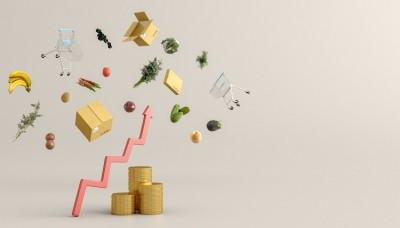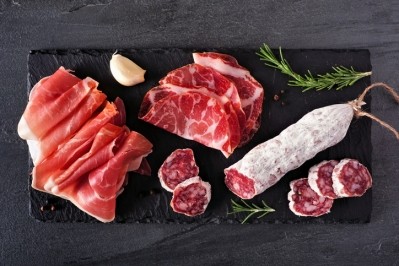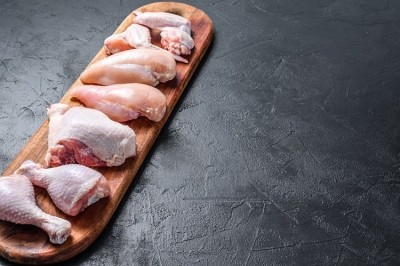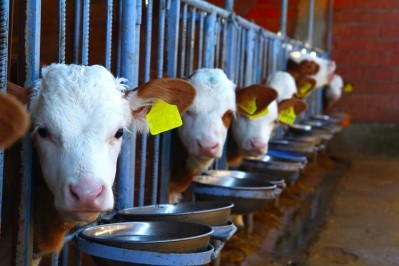Meat tax backed by Western Europeans if revenues subsidise fruit and veg
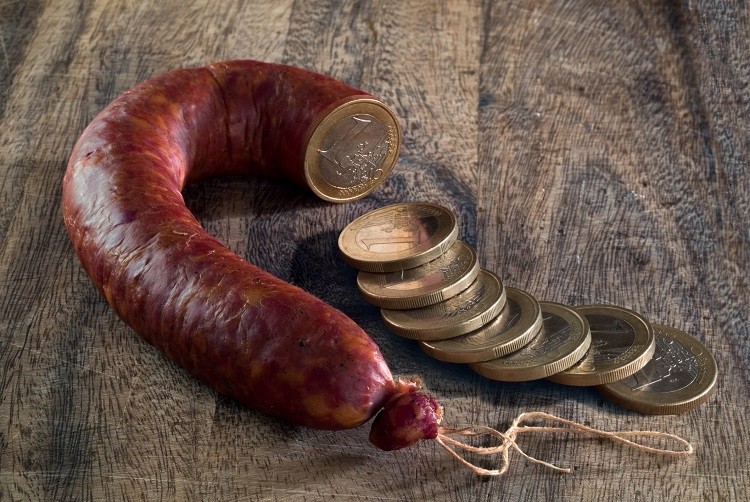
This week, the EU Parliament got together to discuss the Farm to Fork (F2F) Strategy as part of its Green Deal. The strategy aims to achieve a sustainable food system across the bloc, and in doing so, hopes to advance the EU’s objective of reaching climate neutrality by 2050.
In the current strategy, the Commission proposes to reduce VAT tariffs on organic fruit and vegetables to 0%. With the F2F Strategy due to be amended next week (2 February), the True Animal Protein Price (TAPP) Coalition is pushing for higher VAT on meat, which it says could be used to offset VAT on fresh produce.
Consumers support meat price hikes
According to the TAPP Coalition – which counts ProVeg International, the Dutch Vegetarian Society, and Compassion in World Farming among its members – and animal welfare charity Four Paws, consumers in Western Europe are more than open to the idea.
In a survey conducted by market research and analytics firm DVJ Insights, 70% of German, French and Dutch consumers said they support a meat tax including environmental costs, if tax revenues are used to reduce VAT on vegetables and fruit, support farmers for sustainability and animal welfare improvements, and compensate low income groups.
Thirty-four percent said they were ‘neutral’ to the idea, while 9-16% disagreed.
A significant number of consumers – 80% of Germans, 67% of French, and 63% of Dutch – said they were willing to pay a tax of at least €0.10 per 100g meat if revenues are used to pay farmers for improved animal welfare and CO₂ reduction, and higher salaries for workers in slaughterhouses.
In Germany, 53% said they were willing to pay at least €0.25 per 100g under the same conditions. The same was true for 39% of French and 32% of Dutch consumers.
The further right, the more support?
The same survey also revealed interesting findings concerning consumers’ willingness to pay more for meat and their political leaning. The TAPP Coalition was surprised to note that voters of conservative or classical liberalist parties in the three countries surveyed supported meat taxes more than voters of left-wing parties.
In France, for example, 70% of people voting for President Emmanuel Macron’s ‘La Republic en Marche’ support a meat tax of €1/kg. The same can be said for the conservative party ‘Les Republicains’. However, a lower percentage (64%) of the ‘Parti Socialiste’ back the proposal.
In Germany, 80% of voters of left-wing party ‘Die Linke’ support a meat tax of at least €1/kg, whereas 82% of Angela Merkel’s CDU/CSU electorate back the proposal.
In both France and Germany, a majority of voters of all political parties agrees with a €1/kg tax.
In the Netherlands, just 60% of voters of the socialist party SP support this meat tax plan, compared to 67% of voters of Christian conservative parties CDA, CU, and SGP, and 71% of President Mark Rutte’s liberal party VVD.
How should revenue from a meat tax be used?
When consumers were asked exactly how revenues from a meat tax should be used, reducing VAT on vegetables, fruits and meat substitutes to as close to 0% as possible was high up there (41%).
However, most support (45%) went to paying farmers to improve standards for environment, climate, nature and animal welfare. Thirty-three percent of consumers wanted to use the money to increase the income of low-income households by at least €60 per capita/year to pay for higher food prices, and to support developing countries in their climate change and biodiversity policies.
The survey revealed that 65% of consumers in France, Germany and the Netherlands agree that part of meat tax revenues should be used to decrease the number of slaughtered animals and improve animal welfare at farms.
0% VAT on fruit and veg
Again, concerning the Commission’s proposal to reduce VAT tariffs on organic vegetables and fruits to 0%, consumers in the three countries were largely in favour.
Seventy-five percent of consumers in France, 72% in Germany, and 64% in the Netherlands agreed with reducing VAT tariffs on (organic) fruits, vegetables and other plant-based protein products to 0%, as well as shifting meat products and unhealthy sugary drinks from the reduced VAT tariff to the normal ‘high’ VAT tariff.
Overall, 50% of consumers in the three countries want supermarkets to increase prices on meat (by 25-35%) and charge a lower price (25-35% cheaper) for fruit, vegetables and other healthy and/or sustainable foods.
And with regards to the Commission’s proposal for a carbon border adjustment mechanism (import tax), 72% of French, 67% of German, and 54% of Dutch consumers support it.
For the TAPP Coalition, these findings indicate that the F2F Strategy has wide support, if political leaders in Member States decide to ‘green’ the VAP system at EU level.
“The consumer survey shows a political reality: a majority of West European consumers expect their political leaders to tax meat products to use revenues to reduce VAT taxes on vegetables, fruits and meat alternatives and pay farmers to increase animal welfare and green standards,” said director of the Tapp Coalition Jeroom Remmbers.
“We expect EU Ministers to start the legislation at national and EU levels. They can reduce GHG-emissions and biodiversity loss form food, while protecting EU farmers, improving public health and reducing healthcare costs for consumers.”
